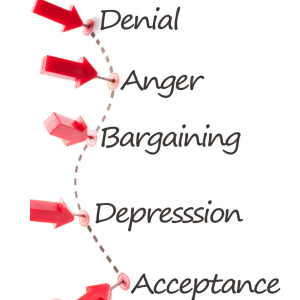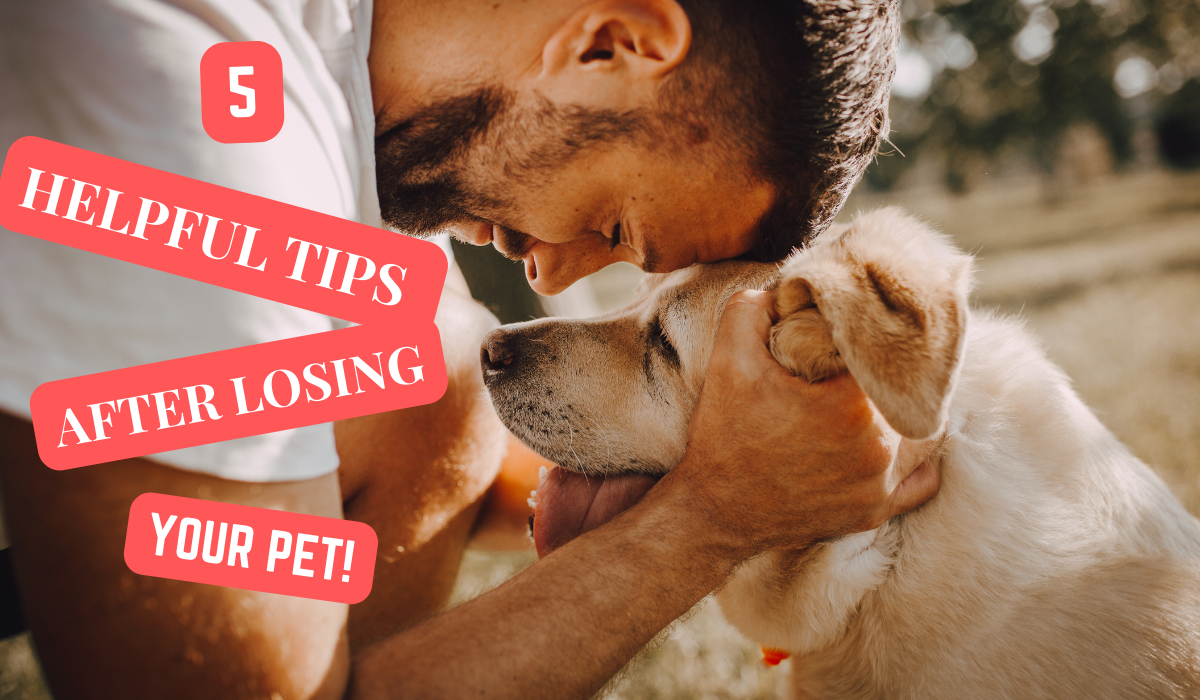

INTRODUCTION – LOSING A PET SUDDENLY.
Losing a pet suddenly is a harrowing experience that can leave you feeling lost, heartbroken, and overwhelmed by grief. These cherished companions become part of our families, offering unconditional love and joy that enrich our lives immeasurably. The abrupt absence of their presence can create a void that seems impossible to fill, and the shock and suddenness of the loss often compound the intensity of the grief.
We understand how difficult this time can be, and it’s important to acknowledge that your feelings are a testament to the special bond you shared with your pet. This guide aims to recognise the depth of your sorrow and offer a compassionate hand to hold as you navigate through this challenging period. We aim to provide support, understanding, and practical resources to help you cope with the sudden loss of a pet.
Whether finding solace in shared experiences, understanding the grieving process, or exploring ways to honour and remember your beloved companion, we are here to guide you through every step of this journey.
I MISS MY DOG SO MUCH IT HURTS! – THE EMOTIONAL IMPACT OF LOSING A PET SUDDENLY.
How often have we heard the above statement from folks who lost their pet? This simple yet powerful statement encapsulates the deep pain and longing felt in the absence of their beloved companion. The pain is emotional and can manifest physically, a testament to the strong bond shared. It’s a pain that can be felt in the quiet moments once filled with the pitter-patter of their paws, in the emptiness of a home that once echoed with their presence, and in the silence where their comforting sounds once resided.
The emotional impact of suddenly losing a pet can be profound and all-consuming. For many of us, pets are not just animals but family members whose presence is intertwined with our daily lives and routines. When they pass away suddenly, it can feel as though a piece of our heart has been torn away without warning. This loss can trigger intense emotions, ranging from disbelief and shock to profound sadness and despair. The abrupt nature of the loss means there is no time to prepare emotionally, making the grieving process even more challenging.
This level of grief can sometimes be misunderstood by those who have never formed such a bond with a pet, leading to feelings of isolation among the bereaved. It’s important to acknowledge these feelings as valid and understand that mourning the loss of a pet is a natural and necessary process.
The depth of the pain reflects the depth of the love shared, and it’s a testament to the significant role pets play in our lives as sources of comfort, companionship, and unconditional love. In navigating through this challenging time, embracing these emotions as part of the healing journey is crucial. It’s about allowing yourself to grieve, remembering the joy your pet brought into your life, and gradually finding ways to heal while holding onto the love you shared.

STAGES OF GRIEF AFTER LOSING A PET.
The grieving process after losing a pet can be an intensely personal experience. Yet, many find comfort in understanding the typical stages of grief as outlined by Elisabeth Kübler-Ross. Elisabeth Kübler-Ross first outlined five stages of grief — sometimes called the Kübler-Ross model — in her 1969 book On Death and Dying.
While not everyone experiences these stages in the same order or intensity, they provide a framework to help pet owners recognise and navigate their emotions during such a difficult time. Tailoring these stages to the context of pet loss, especially when the loss is sudden, highlights the unique challenges and feelings involved.
involved.
- Denial: The initial shock of losing a pet suddenly can lead to denial. This is the mind’s first defence against a painful reality. You may expect your pet to greet you at the door as usual or hear their sounds around the house. Denial serves as a temporary buffer to the full impact of the loss.
- Anger: As the situation’s reality sets in, anger can emerge. This anger may be directed at yourself, the circumstances leading to the loss, or even the vet who treated your pet. It’s important to understand that anger is a natural response to feeling powerless and heartbroken.
- Bargaining: In the throes of grief, dwelling on “what if” and “if only” statements are typical. You might find yourself replaying different scenarios where your pet could have been saved. This stage reflects the desperate wish to return and alter the outcome.
- Depression: As the full extent of the loss sinks in, profound sadness and depression may follow. Signs include crying, withdrawal from social activities, and a deep sense of loneliness. Unlike the earlier stages, which are often reactive, depression is more about accepting the reality of the loss and its implications.
- Acceptance: Reaching acceptance doesn’t mean the pain of losing your pet is gone, but rather, it signifies understanding that the loss is a part of your life’s reality. It involves adjusting to life without your pet, finding ways to keep their memory alive, and allowing yourself to experience joy and love again.
The sudden loss can intensify these stages, making the transition from one stage to another more abrupt and unpredictable. The shock and disbelief can linger longer, complicating the grieving process. It may also prompt more intense guilt or regret, mainly if there are no signs that your pet is unwell.
Recognising these stages as part of the natural grieving process is crucial in allowing yourself to mourn the loss of your pet thoroughly. It’s important to give yourself grace and understand that grief is not a linear process; you may move back and forth between stages, experience them out of order, or find certain stages more pronounced than others.
Seeking support from friends, family, or pet loss support groups can be incredibly helpful in navigating this journey. Ultimately, healing from the loss of a pet is about finding a way to honour their memory while gradually allowing yourself to embrace the love and joy they brought into your life.

COPING WITH THE LOSS OF A PET.
Coping with the loss of a pet is a deeply personal process that varies significantly from one individual to the next. However, several practical advice and emotional coping strategies can help ease the pain and facilitate healing during this difficult time.
Creating a Memorial: One way to honour your pet’s memory and process your grief is by creating a memorial. This could be as simple as a photo album filled with pictures of happy times, a shadow box with their collar, a favourite toy, or even planting a tree in their memory. These memorials are a tangible reminder of the love and joy your pet brought into your life, providing a place for reflection and solace.
Seeking Support: It’s important to remember that you’re not alone in your grief. Seeking support from pet loss support groups in person or online can provide comfort and understanding from others who have experienced similar losses. These groups offer a safe space to share your feelings and memories, helping you realise that your emotions are valid and that it’s okay to mourn the loss of a pet. Additionally, consider speaking with a therapist who specialises in grief counselling, especially if your grief feels overwhelming or unmanageable.
Learning the Importance of Self-Care: During the grieving process, taking care of yourself physically and emotionally is crucial. This means allowing yourself to feel and express your grief in healthy ways, such as writing in a journal, talking with friends or family, or engaging in creative activities like painting or music. Ensure to maintain a routine that includes regular meals, exercise, and enough sleep. Sometimes, it’s the simple acts of self-care that can provide a sense of stability and comfort during turbulent times.
Allowing Yourself Time: Healing from the loss of a pet takes time, and it’s essential to allow yourself to grieve at your own pace. There’s no right or wrong way to feel after losing a pet, and there’s no set timeline for when you should be “over it.” Be patient with yourself and understand that healing is a gradual process.
Celebrating Their Life: Instead of focusing solely on the loss, try to celebrate the life and love your pet shared with you. You can do this by sharing stories and photos of your pet with others, dedicating a day to celebrate their memory, or even volunteering at a local animal shelter in their honour. These actions can help shift the focus from your loss to your pet’s positive impact on your life.
Finding Meaning: Some people find comfort in finding or creating meaning after losing a pet. This could involve helping other animals, advocating for animal welfare, or learning something new about pet care or grief you can share with others. Finding a way to make a positive difference in the world by remembering your pet can be a powerful way to honour their legacy.
Remember, grieving the loss of a pet is a process that requires compassion, patience, and time. It’s okay to seek help, mourn, and remember the happy times. Your pet was an essential part of your life, and it’s natural to feel a profound sense of loss in their absence.

SUPPORTING CHILDREN WITH THE SUDDEN LOSS OF A PET.
Explaining the loss of a pet to children and supporting them through their grief is a delicate task that requires sensitivity, honesty, and compassion. Children form deep bonds with their pets, and the sudden loss can be confusing and profoundly upsetting. Here are some tips for navigating this challenging time:
Be Honest and Use Simple, Clear Language: It’s important to be honest with children about the death of a pet. Use age-appropriate language to explain what has happened in a straightforward way. Avoid euphemisms like “put to sleep” as these can be confusing and might lead children to fear bedtime or misunderstand the permanence of death. Instead, you can say, “Our pet won’t be with us anymore because their body stopped working.”
Allow Them to Express Their Feelings: Encourage children to share their thoughts and feelings about the loss of the pet. Let them know it’s okay to feel sad, angry, or even confused and that these emotions are a natural part of grieving. Be there to listen, offer comfort, and validate their feelings.
Encourage Questions: Children may have questions about death and what happens afterwards. Be prepared to answer these questions honestly but gently, considering the child’s age and emotional maturity. It’s okay to admit if you don’t have all the answers.
Involve Them in Memorializing the Pet: Just like adults, children can benefit from a ceremony or creating a memorial for their pet. This could involve drawing pictures of their pet, planting a tree in their honour, or sharing favourite stories about their pet. These activities can help children process their grief and keep the memory of their pet alive.
Maintain Routines: Regular schedules and routines can provide children stability and security during grief. While allowing space for mourning is essential, maintaining normalcy in other aspects of life can help children cope better.
Offer Reassurance: Children might worry about the well-being of other pets or even family members. Reassure them by emphasising the care and love you all share for each other. It’s also helpful to discuss the life cycle in a way that they can understand, reassuring them that love remains even when someone or a pet is no longer physically present.
Seek Additional Support if Needed: If a child is struggling to cope with the loss of a pet, consider seeking support from a counsellor or therapist who specialises in grief and children. Sometimes, talking to an outside professional can help children work through their emotions safely and constructively.
Supporting a child through the sudden loss of a pet is an opportunity to teach them about love, loss, and the grieving process. By handling the situation with care and understanding, you can help them develop healthy coping mechanisms to serve them throughout their lives.

SHOULD I GET ANOTHER PET?
Deciding whether to welcome another pet into your home after experiencing loss is a deeply personal choice that comes with its own set of considerations. The void a beloved pet leaves is profound, and the thought of filling that space can bring about a mix of emotions, from guilt to hopeful anticipation. It’s important to recognise that there’s no right or wrong time to get another pet; the decision is highly individual and should be made based on your circumstances, readiness, and capacity to provide a loving home.
CONCLUSION – LOSING A PET SUDDENLY
In conclusion, losing a pet suddenly is an incredibly heart-wrenching experience that profoundly impacts our lives. As we’ve explored throughout this guide, navigating through the maze of emotions, understanding the stages of grief, finding ways to cope, and considering the future regarding the possibility of a new pet are all steps on the healing journey. It’s essential to remember that grief is a deeply personal process, and there’s no right or wrong way to feel during this time.
Coping with the sudden loss of a pet is challenging and filled with ups and downs. Yet, through this process, we also discover our strength, resilience, and the unbreakable bond of love that we share with our pets. Remember, it’s okay to miss your pet deeply and feel the pain of their absence—it’s a reflection of the love you shared. And it’s this love that will guide you through the darkness towards healing and peace.
https://lindamcowan.com/heartbreaking-death-of-a-dog-quotes-to-give-comfort




Pingback: GETTING A NEW DOG AFTER LOSING ONE